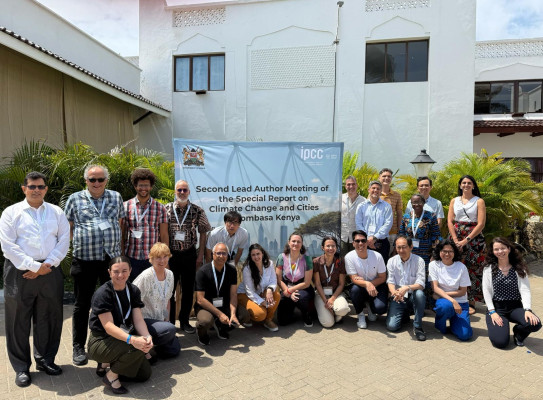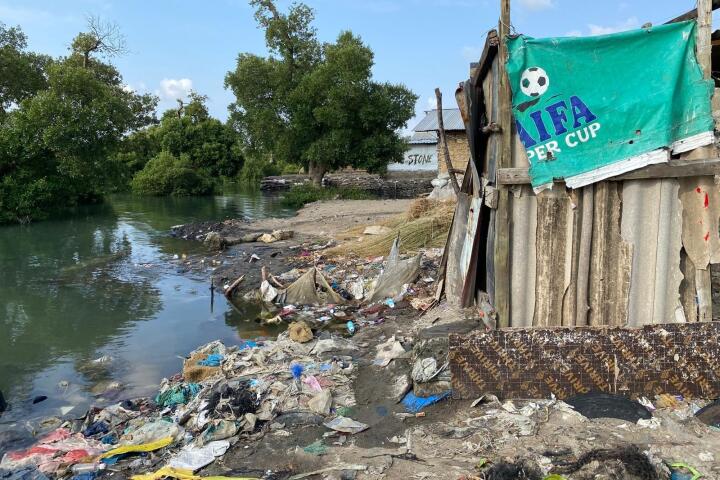New Zealand urban emissions expertise to influence global climate policy

The majority of the world’s population lives in cities, creating around 70% of emissions globally. If we want to tackle emissions, cities are an important target for mitigation action.
The impacts of climate change can be most intense in cities, with urban areas being typically hotter than rural, and the concrete jungle making them less resilient to flooding from extreme weather events.
As a Lead Author for the Intergovernmental Panel on Climate Change (IPCC) Special Report on Climate Change and Cities, Earth Sciences New Zealand Principal Scientist Jocelyn Turnbull will shape advice for mitigating urban greenhouse emissions around the world.
The IPCC is the world’s most recognised climate expert group, with its scientific assessments on climate change influencing policy globally. The IPCC Special Report on Climate Change and Cities will bring together the latest science related to climate change and cities, including climate impacts and risks, and adaption and mitigation solutions.
“The [report] is a call to action for all of us to harness the full potential of our cities in tackling climate change, ensuring that they are resilient, inclusive and sustainable for generations to come. We look forward to the insights that our chosen experts will bring to develop a robust and actionable report,” said Winston Chow, the Co-Chair of the IPCC Working Group II when announcing the report authors earlier this year.

Bringing the CarbonWatch-Urban research programme to a global stage
Jocelyn Turnbull leads Earth Science New Zealand’s flagship research programme, CarbonWatch-Urban and is recognised as a world expert in urban greenhouse gas emissions research. She has been appointed as one of the Lead Authors for the chapter, “Cities in a changing climate: trends, challenges and opportunities”.
The Lead Authors write the bulk of the chapter, with support from other roles. Turnbull said that the role presents a valuable opportunity to review and synthesise world-leading research, and then communicate it to policymakers and the global community.
“Being part of the IPCC process is a way to make the excellent science that we do here in New Zealand visible to the world.”
It’s really exciting to showcase our CarbonWatch-Urban research globally, and to bring the global perspective back home to our scientists and stakeholders who are passionate about mitigating emissions.
Climate change a harsh reality for Mombasa settlement
The Lead Authors met in Mombasa, Kenya, to work on the draft report. They spent time with young leaders from Tudor Moroto, an informal settlement already experiencing the impacts of climate change.

“Their homes are makeshift shelters built on reclaimed land at the bottom of a hillside, right at sea level," Turnbull explains.
"Flooding is a major problem. Seeing the conditions first-hand was invaluable to help understand the unique challenges associated with these slum settlements.”
Turnbull says that the young leaders from Tudor Moroto are working hard to help the community adapt to climate change.
“Bringing IPCC to visit was a way to celebrate these community efforts, and help them to continue their work.”
The Special Report on Climate Change and Cities is expected to be finalised in early 2027.